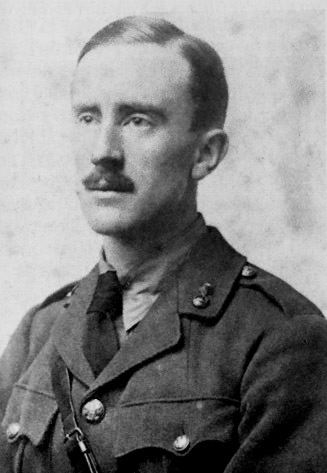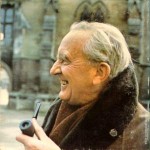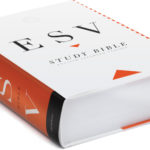Tolkien, The Movie
The movie industry has an insatiable appetite for what they know will work. With Tolkien, they have another sure thing. After all, the success of the movie versions of his epic fantasy novels proved extremely successful—and that means, popular as well as lucrative. So wouldn’t all those Lord of the Rings and Hobbit fans be just as likely to love a movie about the author of the stories they love?
 On top of this obvious appeal, there’s also the emergence of another popular genre—the “story behind” story, usually dealing with the creator of an imaginary piece of literature rather than with the story itself. So we’ve had movies such as Finding Neverland, the story about the playwright J. M. Barrie who created Peter Pan, and Goodbye Christopher Robin, the story of A. A. Milne and his creation of Winnie the Pooh. Or how about The Man Who Invented Christmas, about Charles Dickens and his creation of A Christmas Carol.
On top of this obvious appeal, there’s also the emergence of another popular genre—the “story behind” story, usually dealing with the creator of an imaginary piece of literature rather than with the story itself. So we’ve had movies such as Finding Neverland, the story about the playwright J. M. Barrie who created Peter Pan, and Goodbye Christopher Robin, the story of A. A. Milne and his creation of Winnie the Pooh. Or how about The Man Who Invented Christmas, about Charles Dickens and his creation of A Christmas Carol.
What a perfect storm for a movie about John Ronald Reuel Tolkien, AKA J. R. R. Tolkien, the “father of modern epic fantasy.”
When a story comes to the big screen, there are always questions. The first is, will the movie be faithful to the source material? In the case of a biographical drama, this question seems of highest concern. Tor Magazine, in an article by Jeff LaSala, recommended that fans set a low bar of expectation, simply because the “purists” of Tolkien’s epic fantasies saw what the movie media did to the books.
I’m not sure that’s an adequate reason to assume the worst about a story dealing with a historical figure. Of course, there’s always the danger that the movie creators might want to embellish the life of a man known for his academic pursuits more than they desire to stick with the factual, documented facts of his life.
Now, I expect there will be embellishments to the story, but what matters most to fans of Tolkien is that the filmmakers are true to the man. You can only add so much extra drama without straining credibility. J.R.R. Tolkien was a man of good humor, but it was his imagination that was vast—not a life of adventure. His most defining experiences were in his youth: his upbringing, his losses, his clandestine courtship with Edith, and of course, absolutely, the Great War. So there is a lot of opportunity, and a lot to work with, here. (Ibid.)
 Does “a lot to work with” translate into a good movie? I wonder. I don’t think there are the clear lines of connection with Tolkien’s life and the world he created, that there have been in the previous biographical films. Did this place inspire the idea of that imaginary story location? Were these people the reason Tolkien created those villains or that heroine?
Does “a lot to work with” translate into a good movie? I wonder. I don’t think there are the clear lines of connection with Tolkien’s life and the world he created, that there have been in the previous biographical films. Did this place inspire the idea of that imaginary story location? Were these people the reason Tolkien created those villains or that heroine?
I don’t think he left to posterity a statement that can allow us fans to know precisely what motivated him. Except for the obvious. When Tolkien was a child, for instance, he spent time exploring a variety of places, including his aunt Jane’s farm named Bag End. To be honest, I don’t know if his letters and articles and other papers might not have given more information about his prompts and motivations. I haven’t read J. R. R. Tolkien: The Biography by Humphrey Carpenter. But I would hate to find obvious places where the movie writers made stuff up just because they thought it would be cool if it were true. From the Tor article again:
I’m a little worried the filmmakers will make too many parallels between (1) Tolkien’s early life and (2) imagery that they assume a movie audience—familiar only with Jackson’s adaptations—will find recognizable. For example, Tolkien hadn’t conceived of the One Ring as a mighty artifact of evil until he set to write the sequel to The Hobbit, for example. And he hadn’t started that book until the early 1930s. So if we see too much ring emphasis, they’ll be embellishing indeed.
The other big question I have is, how will the movie portray Tolkien’s deep religious convictions? How will they show his godfather and mentor, Father Francis Xavier Morgan? Will the movie people be accurate or will they gloss over this influential, worldview-shaping, part of Tolkien’s life? LaSala agrees.
I also dearly hope they don’t shove Tolkien’s faith aside. I know this isn’t just a straight biography, but it was vitally important in his life and it’s layered deeply in his writing.
Often times I can get a clear idea of a movie from the trailers. In the case of Tolkien my questions remain. Here’s the first one, the shortest of the two, released some two months ago:
And then there’s this trailer, the longer version that gives a bigger feel for the story, released a month ago:
Here’s the official info released by Fox:
TOLKIEN explores the formative years of the renowned author’s life as he finds friendship, courage and inspiration among a fellow group of writers and artists at school. Their brotherhood strengthens as they grow up and weather love and loss together, including Tolkien’s tumultuous courtship of his beloved Edith Bratt, until the outbreak of the First World War which threatens to tear their fellowship apart. All of these experiences would later inspire Tolkien to write his famous Middle-earth novels.
Only In Theaters May 10, 2019
Directed by: Dome Karukoski
Written by: David Gleeson and Stephen Beresford
Produced by: Peter Chernin p.g.a., Jenno Topping p.g.a., David Ready p.g.a., Kris Thykier p.g.a.
Cast: Nicholas Hoult, Lily Collins, Colm Meaney, Anthony Boyle, Patrick Gibson, Tom Glynn-Carney, Craig Roberts, Laura Donnelly, Genevieve O’Reilly, Pam Ferris and Derek Jacobi
There’s enough here to intrigue me. Will I fall in love with the historical figure, or will he be subsumed by the fictionalized movie version of a story intended to earn big bucks? I guess I’ll know some time after May 10.










































It looks like it’ll be an interesting movie, though I still somewhat have low expectations for it. As far as the faith elements…they may include them, but not in a realistic way that shows how it might have actually influenced Tolkien’s life. It can be pretty hard to depict someone’s faith, especially for someone that’s outside that faith that might be a lot more worried about other story elements instead. No clue what the religious convictions of the writers and actors are, but a lot of atheists seem to water Christianity’s importance down to merely being a comfort during hard times and such.
I agree, Autumn. I think we’ll know how the movie makers view his faith by their treatment of Father Morgan. He was a father figure in Tolkien’s life and he clearly respected him, but if the movie depicts him as harsh and unrealistic by keeping the sixteen-year-old Tolkien from dating a women three years his senior, then it will be apparent they are not realistically showing the relationship. But you’re so right that showing how one’s faith influences a person is a hard job, even for believers. I have to also agree with you about expectations. Mine are low as well.
Becky
One issue that seems pretty obvious about the film is that the person playing Tolkien DOESN’T ACT OR TALK LIKE Tolkien whatsoever. Just look up any actual videos of Tolkien. Very specific personality and way of talking. Pretty disappointing for a “biographical” film, or a film based on his life. I think that shows just what kind of film it will be (it’s about the drama in his life, the events, not his personality). Which is fine. . . just not what I would have hoped for.
Also, one big part of tension with his relationship with Edith Bratt was that he was catholic and she was not. She converted to marry him, and her parents were very against it. Will be interesting to see what they do with the story. . .
I think the important thing the movie would have to get across is how much of an effing NERD Tolkien was, but how do you do that in a visual medium when most of it was linguistic or academic jokes?
Hey, off topic, but I found something you might be interested in. I remembered a prehistoric animal story that I ran across a long time ago. The author made several storyboards, and this is the first of them:
I found out that they also started working on a comic version of their story. So far it’s covered different parts of the plotline than the storyboard has:
https://tapas.io/series/AllAreNotHunters
I’m reminded of setting my expectations when I finally watched Shadowlands. I had a mental portrait of C.S. Lewis based on his writings and talks. Now I layer over it a visual portrait. Rather than focus on the film’s accuracy (i.e., was this film an accurate biography of his life?), I tried to take away a sense of feeling from incidents the movie portrayed that, generally, validated what I knew from reading Lewis’ works.
No matter how well-intentioned the biographer, no matter how skilled, no matter how good the subject material is, I feel it’s a slippery slope trying to confidently attach causation with a person’s personal experiences. We’re too complex for some of the simple parallels that get drawn. Links, to be sure, but how tenuous?
Then again, I’m usually a pessimist when it comes to these things, so I’m already going in with pretty low expectations!